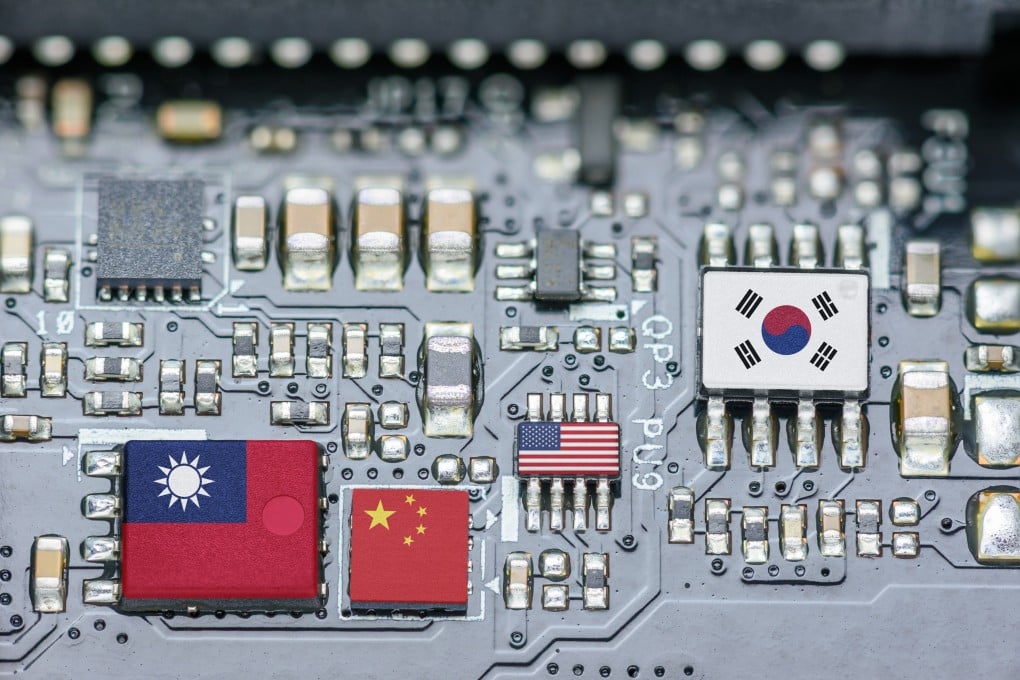Tech war: Taiwanese veteran who helped China’s memory chip progress says US-led Chip 4 Alliance could backfire on member countries -report
- Memory chip expert Charles Kau, who helped create Nanya Technology, says countries that join Chip 4 could lose the China market
- Kau was quoted as saying that Taiwan and South Korea could be ‘significantly impacted’ by joining the US-led alliance

A US-led chip alliance aimed at reducing China’s role in semiconductor supply chains could backfire on countries that join, such as Taiwan and South Korea, as it will likely mean they lose the China market, a Taiwanese semiconductor industry veteran who helped the mainland’s memory chip progress was quoted by Taiwanese media as saying.
Charles Kau, 69, a memory chip expert who worked at Intel and Taiwan Semiconductor Manufacturing Co (TSMC) early in his career, helped to create Nanya Technology in 1995 which went on to become Taiwan’s biggest DRAM chip maker.
After his retirement from Nanya, he joined state-backed chip conglomerate Tsinghua Unigroup in 2015, becoming the first top Taiwanese executive in the memory chip industry to join a mainland company, and worked there till 2020 when his five-year contract expired.
Kau said in an interview with Taiwan-based Economic Daily News this week that the so-called Chip 4 Alliance, a partnership initiated by the US to include South Korea, Japan and Taiwan to coordinate semiconductor supply chain policy, is designed to hurt mainland China by denying the country access to advanced technologies and equipment.
Kau was also quoted as saying that Taiwan and South Korea could be “significantly impacted” by joining the US-led alliance. He said memory chip giants like Samsung Electronics and SK Hynix, which have already built memory chip plants in China, would be barred from upgrading their Chinese manufacturing sites, and this would mean that Korean capacity in China would quickly become outdated and less competitive.
“Taiwan would unlikely be a winner and may get hurt as well [by the alliance],” Kau was quoted as saying. He said Taiwan businesses have many clients across the Taiwan Strait and the alliance may force Taiwan businesses to give them up. As such, Kau said the self-ruled island must carefully rethink if it really wants to be on the same page with Washington.